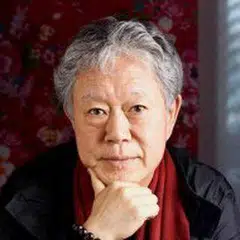This ordinary, extraordinary life: A Taiwanese woman called Ching-ti [Part 1]
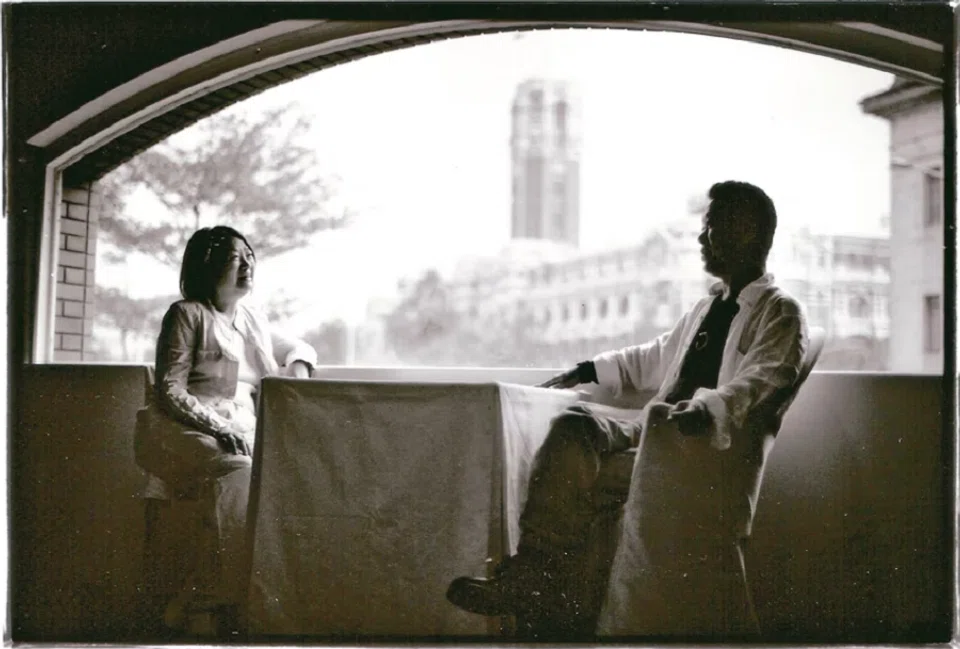
I know many female Sagittarians and they are mostly bright, generous, accepting of many things and people, forthcoming and unbothered by life's trivialities.
Perhaps restricted by the Eastern traditions of women, the female Sagittarians I know are less showy than their male counterparts. They are still passionate and helpful, but they are more reserved and tend to keep a low profile, taking care of things quietly. They often work behind the scenes and are not flashy or flamboyant.
Ching-ti (庆弟) was a female Sagittarian whom I had a close relationship with.
Along the vast Milky Way and amid the infinite dust and starlight, we come together and part in time and space, the trajectory of gravity and the flow of causality, not knowing when we will meet or when we must leave.
The magnanimous Mr Zhuo
I believe I got to know Ching-ti in the early 1980s. She and her husband, Mr Zhuo Xinmiao, operated Tung Hua Books and Golden Bridge Book, which publish social sciences, science and engineering college textbooks. The textbooks are mainly translated from English or compiled by university professors, and the bookstores were once Taiwan's leading college textbook publishers. The couple also owned old bookstores such as New Moon and Kai Ming Book, which compile and publish English and Chinese dictionaries.
Mr Zhuo was a Shanghainese whose hometown seemed to be in Ningbo. As I could not fully understand his Shanghai dialect, Ching-ti, being as considerate and thoughtful as she was, would sometimes interpret for me.

I was not very familiar with Mr Zhuo and saw him as a shrewd businessman who lived a carefree life. He loved his bright-coloured suits and was personable and chivalrous. Whenever he saw gorgeous women, he would often ask, "May I have this dance?"
Ching-ti would smile and explain, "Mr Zhuo loved ballroom dancing when he was young and won a Shanghai ballroom dance competition."
"His ballroom dance instructor was from England."
"Edward," Mr Zhuo added.
Mr Zhuo was perhaps already about 70 years old at the time. He was an Aquarian born in 1911 and 24 years older than Ching-ti. I heard that Ching-ti even had to seek parental consent before they could publicise their wedding because she was not yet 18 at the time.
Mr Zhuo passed away at the ripe old age of 96 in 2006. Every time I saw him, he always had the aura of a rich young chivalrous man walking along the streets of old Shanghai. He was always generous with money, enjoyed extravagance, and loved to be in the thick of action and fun.

Towards the last 20 years of his life, he started the Marco Polo food enterprise. Using his connections from the publishing houses, he worked together with several old bookstores, which were situated in prime locations of the city and had massive interiors, and created Shanghai's earliest cafe-style bakery with an elegant and artistic vibe.
When Marco Polo opened for business, Ching-ti invited me to give a lecture in Shanghai and arranged for me to stay at Hilton Shanghai. After breakfast, Mr Zhuo walked out of the lobby and was followed by a crowd of waiters. Ever ready, Mr Zhuo whipped out 100-RMB bills from his pocket and gave them out as tips - what an extraordinary scene! I still cannot get that image out of my head even today.
I have also seen tourists pouring fish food into the pond of a courtyard, and hundreds and thousands of fish would swim to the surface fighting for it. That was also a spectacle.
To give and to receive; to let go and to gain - there is a subtle causality when you quietly watch. Sometimes you see it, and you are filled with compassion. But from a different perspective, you will realise its redundancy.
"Sentient beings; non-sentient beings" - the "sentient beings" mentioned in the Diamond Sutra seems concrete but it is also very abstract. "Compassion" is simply self-entanglement, and there could be no "compassion" from "non-sentient beings".
Lectures for ordinary folks
Whenever Mr Zhuo returned to Shanghai, he would host a banquet for his relatives, which could be a few or dozens of tables at times. It's also a scramble for food, a sorry sight lacking in deep cultivation. I do not like watching them and often cannot bear to do so either, as if I saw greed in the way they ate; they are hardly enlightened enough nor know how to break free from karma.
In the 1980s, at the same time, Ching-ti also opened a bakery on Chongqing South Road. She had invited pastry chefs from Paris and Japan, creating delectable bagels. A new restaurant opened on the second floor of the bakery, offering quality and sumptuous lunch and dinner buffets. The couple was generous and the bakery was often filled with their friends. "Of course our friends don't have to pay when they come" - this has always been the couple's principle.
"How do you do business like this?" someone asked.
Mr Zhuo chuckled, "What business? It is just something for Xiaoqing to pass the time."
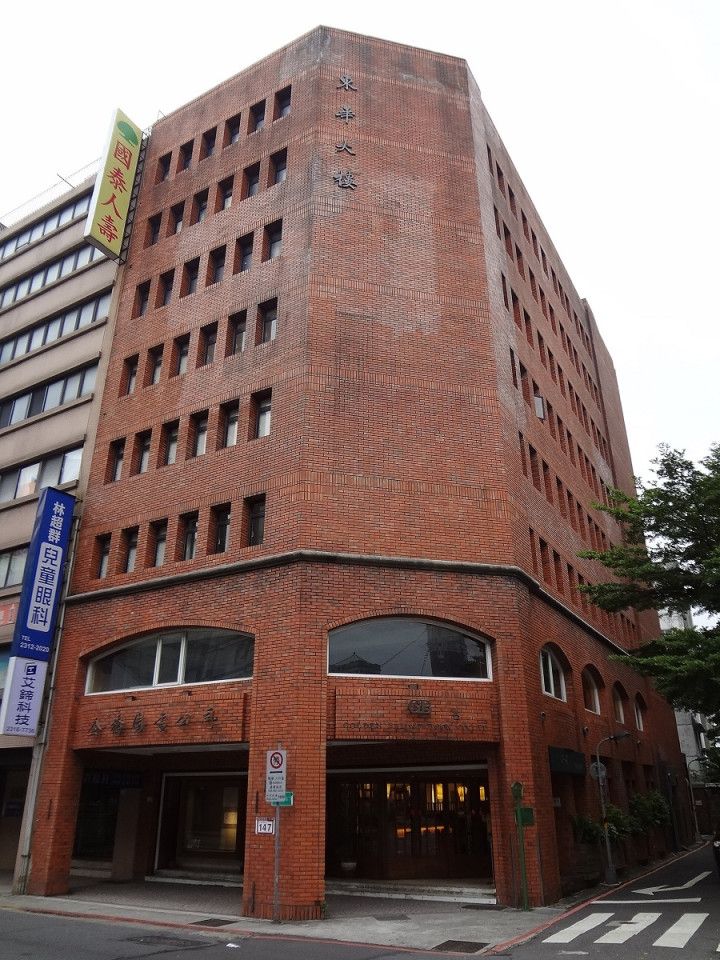
There is a unique tenderness in the way Mr Zhuo addressed his wife as "Xiaoqing" in the Shanghai dialect. They had such a huge age gap and "Xiaoqing" married him when she was barely 18 years old; I guess Mr Zhuo must have loved her like a daughter.
I remember the first time Ching-ti contacted me was to invite me to give a lecture. Tung Hua Books is located directly opposite the Bank of Taiwan head office. The store's building has an elegant red brick facade, mirroring Western-style buildings from the Japanese colonial era.
Henceforth, I gave lectures on the second floor of the building every Friday from 2 pm to 4 pm. I shared about Chinese and Western art and literature, and also gave lectures on Dream of the Red Chamber (《红楼梦》) for four years.
I first discussed Dream of the Red Chamber in Kaohsiung at a grassroots book club. The people who attended my lessons came from all walks of life. There were school teachers, customs officers, students from Kaohsiung Medical University, retired civil servants and also market vendors selling vegetables early in the morning. Many of them became my good friends.
I am very happy to conduct lessons for people from all walks of life. There are many characters from the lower rungs of society in Dream of the Red Chamber, such as Granny Liu; Jiao Da; Jia Rui; Concubine Zhao; Ma Daopo; Ni Er; the grannies who managed the garden; Liu Wu'er, who managed the kitchen; as well as Liu's mother.
If we're unable to see the sufferings of those in riches and glory, of course we will miss the true meaning of redemption in Dream of the Red Chamber.
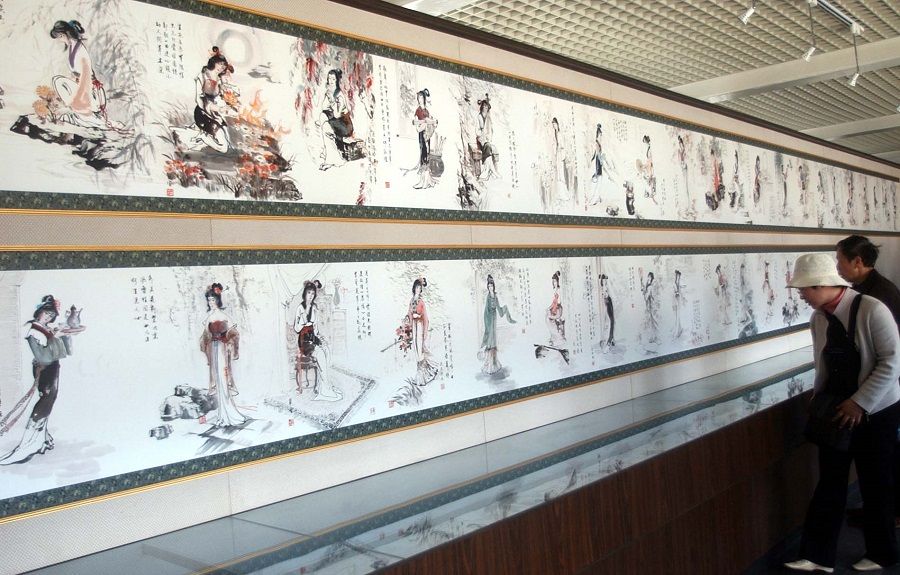
I often pay attention to these characters when I read Dream of the Red Chamber. They do not have power or influence, have nothing to do with the affluent life, and are squashed at the lower rungs of society. To survive, they could be cunning, vicious, angry and barbaric, or blinded by greed and lust, and could sometimes be unscrupulous and despicable. But the author always treats them with forgiveness and tolerance. He must have also witnessed a shoal of fish fighting for a bite of food and was filled with tears of sympathy and compassion. This makes me feel that Dream of the Red Chamber is filled with the redemption of life.
Lessons in redemption for all
"But, maybe I missed it..."
"Missed what?" Ching-ti asked me.
When I gave lessons on Dream of the Red Chamber on the second floor at the invitation of Ching-ti, I was shocked by what I saw - every Friday afternoon, a row of black sedans would pull up outside the bookstore; the chauffeurs respectfully opening the doors. Then, many of the wealthy women and socialites whom you would often see on the news - those embroiled in family affairs reported in the tabloids, be it entanglements with their husband or father-in-law, or even embroiled in corruption and scandals - would stream out.
Their faces and attire are all so familiar, but I've always missed it. During my lessons, I suddenly felt that Dream of the Red Chamber is not only about redeeming the life of those from the lower rungs of society like Granny Liu, but also that of the opulent Jia Yuanchun; the arrogant and condescending Wang Xifeng; and Lady Xing, who busied herself with finding concubines for her husband Jia She.
If we're unable to see the sufferings of those in riches and glory, of course we will miss the true meaning of redemption in Dream of the Red Chamber.
"Missed what?"
I did not reply to Ching-ti at the time. Perhaps she was also too wealthy to understand.
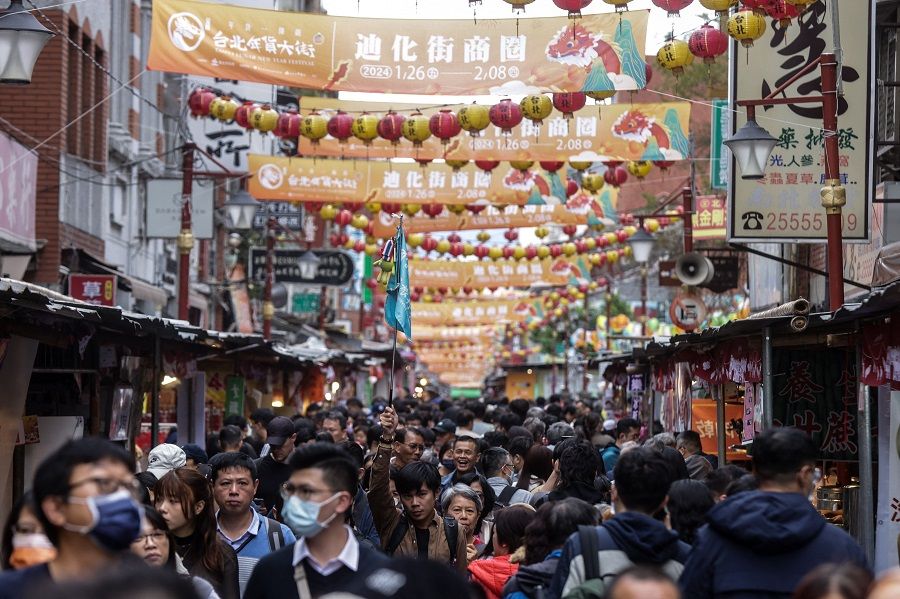
One of my students was a kind-hearted socialite who always tolerated the antics of her rich husband. Whenever he was embroiled in a scandal, she would be chased by the paparazzi - the scene would also look like a school of fish fighting for food.
This kind-hearted wife attended a year of lessons and never once looked up from her seat, vanishing as soon as the lesson was over. I observed her from the second floor and saw her entering a black sedan. It would always remind me of the time when Jia Yuanchun visited her parents in her hometown as the imperial consort. As they knelt before her, she cried, "Why did you even marry me into a place where I must always stay hidden?"
Two years later, this kind-hearted lady died of cancer. That day, it so happened that I was talking about the part in Dream of the Red Chamber where You Erjie swallowed gold and died by suicide. My heart ached and I realised that there is still much narrow-mindedness that I have to let go in order to understand that Dream of the Red Chamber is a "Buddhist scripture".
When I gave lectures on the second floor of Tung Hua Books, was I looking at the urban version of the 12 beauties of Jinling in Dream of the Red Chamber across the room before me? Who was Qin Keqing? Who was Jia Yingchun? It is all so vivid in my mind.
Ching-ti was incredibly intelligent - perhaps she saw it better than I did. She treated everyone equally and was always thoughtful towards each guest who came to the second floor, sincerely offering tea and coffee to all.
Joy of 'betrayal'
A constellation rising and falling, brightening and darkening - there really are causes and effects that we do not know about.
I feel as if I was not giving lectures on Friday afternoons. Rather, I was bringing the group of wealthy women and socialites on a trip to the "illusory land of great void" (太虚幻境), where they can flip through their own destiny and ending.
Although Ching-ti tasted the affluent life, nothing much adorned her. She did not have flashy jewels or coveted luxury items. When she heard everyone praising a NT$7 million (US$222,700) Birkin handbag, she genuinely complimented it too, without any pretentiousness.
As for herself, however, she would often be seen in a pair of ripped jeans and an oversized white linen blouse; sometimes wearing a silver ring that my student Candy or Nick gave her. And she would be so happy about it, showing it off to all her friends and also genuinely complimenting it.

She was one of the few wealthy people I knew who was not dictated by "luxury brands". Perhaps she knew what true "wealth" is, and could therefore break free from it.
She loved my students and watched them as they created their pieces. She also learnt metalworking from them and worked tirelessly to forge a silver cup for me. She even missed dinner at home, which had infuriated Mr Zhuo. Yet, she was elated - she obediently became a wife at the age of 18 and finally experienced the joy of "betrayal".
We became more familiar with each other and became good friends. I once asked her, "Do you know the origin of the name 'Ching-ti'?"
She shook her head and said, "No, I don't."
I think she knew but was willing to indulge me. She was like a little girl listening to a story for the first time; so attentive, so happy.
I guess this is the reason she was so lovable. It is difficult to be lovable when you are so calculative and capable to the point where you know everything.
Thus, I shared the story with her: "The Chinese have a preference for sons. When they give birth to a daughter, they name her Ching-ti (meaning celebrate the birth of a younger brother) or Chao-ti (招弟, meaning welcoming the birth of a younger brother) to express their desire for a boy to be born next."
"Yes." Her eyes lit up like a little girl and said, "I'm an only child and my parents never had another. That's awesome!"
But once they sat down, neither would say a word as the coffee slowly turned cold. Two lonely figures, and one very unforgettable afternoon on Chongqing South Road.
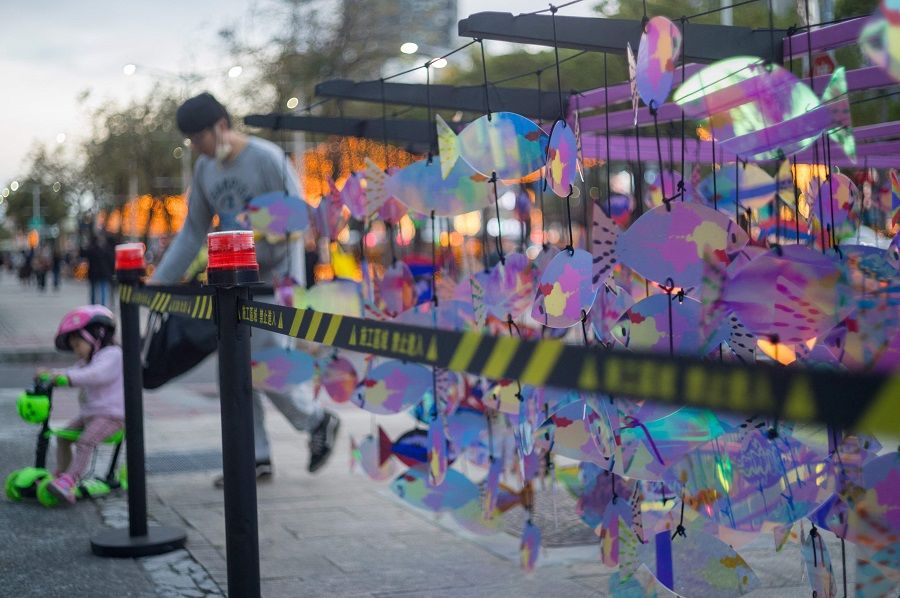
Her intelligence was intuitive. She celebrated her life because there was only one of her on earth. And this is why I grew to like her name "Ching-ti" - she overcame the plight of being a daughter and celebrated the fact that she herself was one of those rare "men".
The couple were "modern" figures who came from prosperity and had their own way of doing things. They were also happy to share the wealth.
On Christmas night, Marco Polo was opened to all their friends and it was like a free-flow buffet banquet. Crowds of people came and left in batches; Mr Zhuo sometimes wore a light pink suit and would take out a gold coin from his pocket, wishing everyone a "Merry Christmas" in his Shanghai dialect. Meanwhile, Ching-ti would busy herself with entertaining the guests with ease and composure. Amid the chaos and clamour, she seemed lonely sometimes.
She often invited artists and writers to her restaurant, and Chou Meng-tieh, a writer who ran a book stand outside Cafe Astoria, often came over as well. Whenever she heard that "Mr Chou is here", she would greet him at the stairwell and shake his hand with a big smile on her face. But once they sat down, neither would say a word as the coffee slowly turned cold. Two lonely figures, and one very unforgettable afternoon on Chongqing South Road.
A sudden passing
Mr Zhuo suddenly passed away in Shanghai in 2006. He had just celebrated his 96th birthday. A banquet was hosted for four consecutive days and "relatives" from all over came. Everyone was given a red packet regardless of whether they knew them or not. Given Mr Zhuo's character, he must have liked such a spectacle. Countless people kowtowed to him one by one, with many of them claiming to be his juniors, happily receiving a big fat red packet.
Mr Zhuo never felt old and stood tall and upright. But after having dinner on the fourth day of the banquet, he tiredly returned to the hotel - not Hilton, but Four Seasons. He slipped and fell in the shower, and passed away.
I rushed to Shanghai, and Ching-ti looked frightened and uneasy, as if she was unsure what had happened.
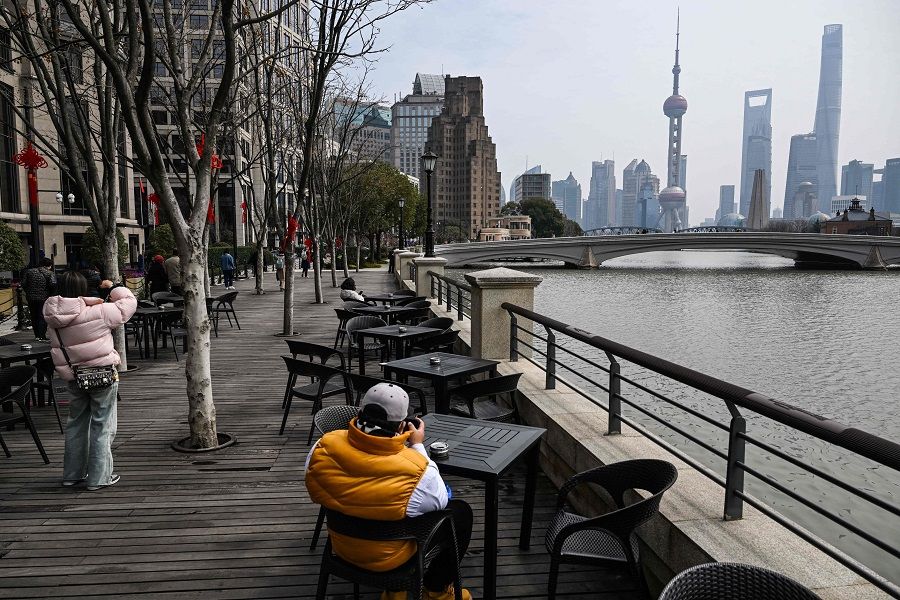
"Mr Zhuo passed away at a ripe old age. He returned to his hometown and saw all his relatives," I said, trying to comfort her that this was a perfect ending.
She remained distraught, unconvinced that there is death in life.
"How do I handle the funeral?" she stared at me blankly.
I recited the Heart Sutra for her and could not sleep a wink the whole night, resolving to copy the Heart Sutra by hand. The next day, I brought breakfast for her and happened to recite the part that says: "Neither begun nor ended, neither impure nor pure, neither increasing nor decreasing." She still stared at me with fear.
Is there also a causality in attaining enlightenment on "impermanence" (无常)? She told me that she was not prepared for Mr Zhuo's death and that he did not have a will - they never talked about death.
At the tender age of 18, she married someone many years her senior. In riches and glory, she believed that everything will last forever and nothing will change. Day in, day out, did Ching-ti also have a place in Dream of the Red Chamber? Did she also have an ending written out for her in the "illusory land of great void"? I pondered deeply.
Those we never meet again
After I finished my lesson on Dream of the Red Chamber at around 4.30 pm, the row of black sedans downstairs would drive off one by one, and the plainclothes men from the presidential office concerned about "safety" left as well.
Ching-ti and I would often sit by the arched windows and watch the grandeur of the buildings across the street, staring at the Presidential Office Building and the Land Bank of Taiwan. A little while later, students from Taipei First Girls High School would be dismissed from school, and girls in groups of twos and threes carrying their backpacks would stroll past. Sometimes they would be accompanied by students from the boys-only Taipei Municipal Chien Kuo High School. There would be laughter and chatter, and boys helping girls tidy their hair.
In that space, the reverberating sounds are the memories of the eternal universe; every exhale and inhale is bright and pure, responding to the vast universe like a baby's cry.

Ching-ti smiled and said, "So beautiful." Did the elderly Grandmother Jia in Dream of the Red Chamber also admire the youthfulness of 15-year-old Shi Xiangyun and Jia Tanchun in this manner?
Ching-ti had an unusually beautiful voice - it had the texture of precious metal, like the resonance of gold or silver.
I often feel that a person's voice is cultivated from the spiritual attainment of one's past life. In Nepal, I heard the sounds of a blue moon singing bowl casted on the night of the full moon. The singing bowl contains a mix of eight types of metals and countless benedictions and incantations. It is no longer a tangible entity or of material existence. In that space, the reverberating sounds are the memories of the eternal universe; every exhale and inhale is bright and pure, responding to the vast universe like a baby's cry.
Yet, she did not know it herself; she merely saw the youthfulness outside the window and praised, "So beautiful."
She eventually decided to bury Mr Zhuo in Shanghai in a large cemetery with a novel and modern design. I guess Mr Zhuo would have liked it.
The crowd of people fighting for food came during the funeral as well; rows and rows of them bowing and kowtowing, with Ching-ti standing in a daze. After standing for a long time, the thoughtful ones would help her to a seat. She would ask that every guest be given some money. It was a grand event, and there was even an attendant of a former government leader who spoke unabashedly on his bulky cellular phone, "Make a bigger pie!"

Qin Keqing's funeral was also described in Dream of the Red Chamber. It was also a grand event. The young Jia Baoyu sent her off the whole way as if he was on an excursion. When he walked past a peasant household, I am not sure why the author had to mention a nameless "Er Ya Tou" (二丫头, second daughter) character. It happened that Jia Baoyu had touched her sewing machine, and she immediately ran past her servants to reprimand him.
The funeral procession moved along, and Jia Baoyu kept turning around on his horse, hoping to catch another glance of the "Er Ya Tou" he would never see in his life again.
Almost no one ever discusses this part of the story in Dream of the Red Chamber. It was a character whom the author had introduced in less than a page and never mentioned again. Maybe it was the author's deepest unease in his writing
There was a sudden commotion at the funeral - among the crowd of people, a man was crying and rolling around in front of Mr Zhuo's tombstone, hitting the ground and stomping his feet. I could not really hear what the man was saying, but he seemed to be crying, "Uncle, uncle..."
The man with the bulky cellular phone was expressionless, seemingly looking at the crying man's behaviour with disdain. He spat on the ground and said to those around him, "I bet he's also here to ask for a slice of the pie."
I believed that I would not see this person ever again in my life, so I remembered it very clearly.
Ching-ti looked lonely among the crowd. But she had always been gentle and elegant; she did not know how to respond to the foot-stomping, chest-thumping scene in front of her.
This article was first published in Chinese on United Daily News as "一個女射手的懷念(一)".
